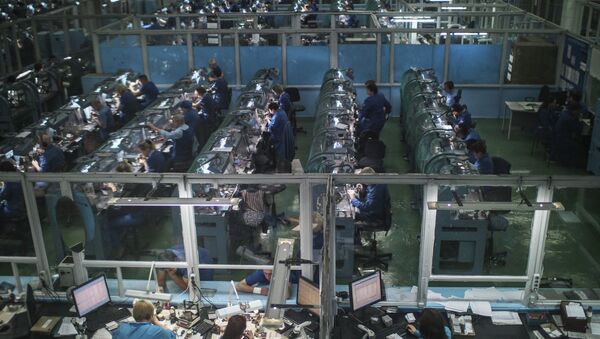This is how the World Bank described the impact of import substitution in its latest economic report on Russia.
Manufacturing industries took advantage of the sharp ruble depreciation and import contraction in the first half of 2014. It appears that manufacturing industries reacted positively to changes in relative prices, reporting an acceleration of economic activities in the second quarter.
Capacity utilization rates inched up. The positive impulse to manufacturing production from import substitution appeared to have been carried over into the third quarter.
However, experts warn that Russian manufacturing firms might soon face capacity constraints, as the key advantage that manufacturing industries received came through depreciation window, which closed in the third quarter of this year as the ruble stabilized around its medium-term equilibrium. The bank also stresses that firms continue facing a tight labor market, and as a result, import substituting firms will face increasing cost pressures and thus may choose to lift prices rather than production.
For their part, private manufacturers agree.
“Right now we’ve had a boost in sales due to the sanctions, but obviously if they continue there can be some other effects on the purchasing power of Russian citizens and things like that, then in the long run they will affect our business as well,” said Mikhail Nikolaev managing partner of family enterprise Nikolaev and Sons.
The World Bank says the positive impact of import substitution is likely to taper off in the second half of next year. And it’s exactly at this point of time when most analysts hope all sanctions will be lifted.

